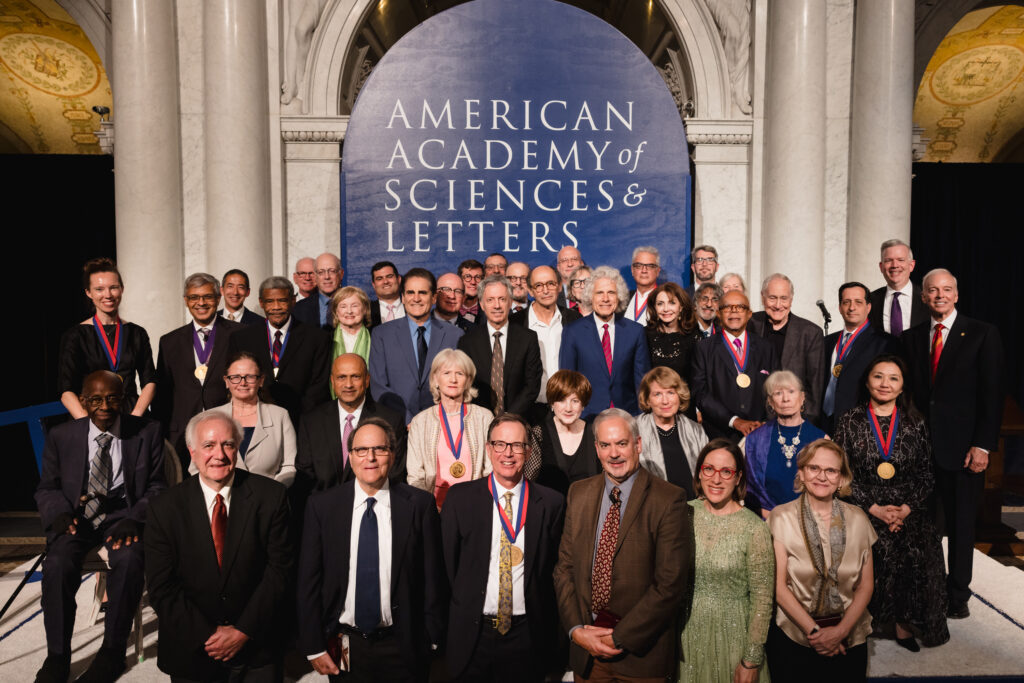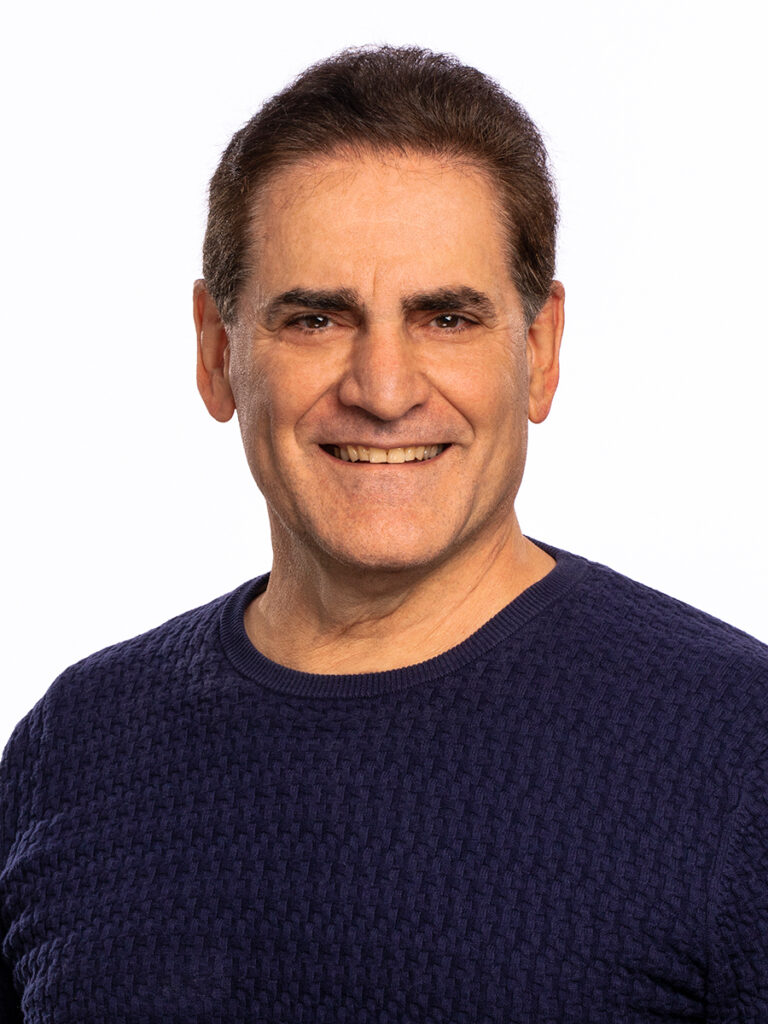Torquato Inducted into new DC-based Academy

Salvatore Torquato, the Lewis Bernard Professor of Natural Sciences, Professor of Chemistry and the Princeton Materials Institute, has been inducted into one of the nation’s newest learned societies, the American Academy of Sciences and Letters. He is one of eight Princeton University inductees this year.
Torquato was invested yesterday evening in a festive ceremony at the Library of Congress in Washington, D.C., where he was lauded for his career contributions in statistical mechanics and soft condensed matter theory.
The American Academy of Sciences and Letters promotes scholarship and honors outstanding achievement in the arts and sciences. “Members of the Academy are scholars who have made extraordinary contributions in the humanities, social sciences, natural sciences, mathematics, engineering, the arts, and the learned professions,” according to an Academy press release.

Salvatore Torquato, the Lewis Bernard Professor of Natural Sciences, Professor of Chemistry and the Princeton Materials Institute, and newly minted member of the American Academy of Sciences and Letters.
“Previously, I was not aware of this Academy,” said Torquato. “But I was very impressed with the people who have been inducted in the past, and that the Academy honors people like Salman Rushdie, who epitomizes freedom of expression and has unabashedly pursued intellectual endeavors without the hindrance of cultural expectations.
“It’s knowledge for the sake of knowledge. That, to me, is very important.”
Torquato’s research is highly interdisciplinary. He is largely motivated by curiosity and interesting questions that arise as he pursues recent work in packing problems, quasicrystals and crystals, hyperuniformity, and disordered heterogeneous materials.
“I’m not afraid of pursuing research that I’m not an expert in,” he said. “It’s one thing to want to do curiosity-driven research, but it’s also important to be able to pose interesting problems that are doable in ones lifetime and ultimately will be interesting to students and postdocs and your colleagues.”
As one example, Torquato mentioned a paper published March of 2023 in Physical Review X , “The Disordered Heterogeneous Universe: Galaxy Distribution and Clustering Across Length Scales.” In it, Torquato and Oliver Philcox, then an astrophysicist at the Institute for Advanced Study, found common ground between the statistical descriptors Torquato has worked with throughout his career in the realm of disordered materials and the task of characterizing the complex spatial distribution of galaxies in the Universe.
Together, they generated new insights about the structure of the Universe across length scales.
“This paper perfectly illustrates what I mean by curiosity-driven research, which motivated both of us. We were willing to learn each other’s field,” said Torquato. “We had numerous discussions over about a year, and we did so just because it was fun. The fruits of our labors culminated in writing a wonderful paper together.”
The Academy encourages the fruitful exchange of ideas within academia and society at large by sponsoring occasions for scholarly interaction and providing platforms for the presentation and dissemination of scholarship in the humanities, social sciences, natural sciences, mathematics, and engineering.
It was established in 2023, with inaugural members and awardees announced last November. There were 10 Princeton faculty in that group.
Other Princeton faculty inducted into the Academy this year included William Chester Jordan, Dayton-Stockton Professor of History Emeritus; Clifford P. Brangwynne, June K. Wu ’92 Professor of Chemical and Biological Engineering and founding director of the Omenn-Darling Bioengineering Institute; Bernard Haykel, professor of Near Eastern Studies; Alexandru D. Ionescu, professor of mathematics; Frances Lee, professor of politics and public affairs; Stephen Macedo, Laurance S. Rockefeller Professor of Politics; and H. Vincent Poor, Michael Henry Strater University Professor.
